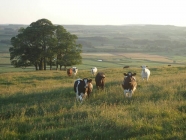
Ian Boyd
Professor of Biology, University of St Andrews
Sir Ian Lamont Boyd FRSB FRSE is a Scottish zoologist, environmental and polar scientist, former Chief Scientific Adviser at the Department for Environment, Food and Rural Affairs (DEFRA) and is a professor of biology at the University of St Andrews. He is Chair of the UK Research Integrity Office.
His honours and awards recognising his contributions to science, including the Scientific Medal of the Zoological Society of London, the W. S. Bruce Medal for his research in Polar Science and has been elected as a Fellow of the Royal Society of Edinburgh, Scotland’s National Academy, and is a Fellow of the Royal Society of Biology. He has held an honorary professorship at the University of Birmingham and was awarded the Antarctic Service Medal of the United States in 1995. He led the Sea Mammal Research Unit at the University of St Andrews to the award of the Queen's Anniversary Prize in 2011. In 2017, he was awarded the Polar Medal and an honorary doctorate from the University of Exeter. He was knighted in the 2019 Birthday Honours for services to science and economics on food and the environment.
He has also authored about 200 research papers and books, many about environmental topics. He has been influential in using the population and behavioural dynamics of marine predators, including marine mammals, as indicators of underlying marine resource dynamics to help scope the appropriate levels of human exploitation. He has studied controversial issues in marine environmental science including the interactions between marine mammals and fisheries in the Southern Ocean, the Northern Gulf of Alaska and the effects of anthropogenic noise on marine organisms.
His research also aims to bridge the gap between economics and ecology. Traditionally, ecological economics has stressed the importance of natural resources for commerce and conservation. In fact it covers the whole range of subjects from bioenergetics through to resource exploitation by commercial interests. His research aims to apply theory developed within economics to understanding the criteria used by animals when making investment decisions and also the evolutionary implications of those decisions. It also tries to provide a better understanding of how we should place a value on natural resources (such as unexploited wildlife populations) which have no marketable value.
In a 2017 article in the journal Science, "Toward pesticidovigilance", he called for a new approach to the regulation of pesticides and he made further reference to pesticides in an explanation for the decision made by the UK government in April 2018 to support further restriction by the EU on neonicotinoid pesticides. He also published a recent article in Nature, "Taking the long view", which advocated taking a systems approach to understanding the problems which governments have to manage.
In 2015, he wrote an oped in the New York Times titled "Our deadened, carbon soaked seas" with Rick Spinrad who was then the Chief Scientist at NOAA to draw attention to the dangers of ocean acidification. Also in 2015, he wrote an article on environmental forensics where he said "We breathe, eat and drink other people's pollution. The 'tragedy of the commons' has a powerful presence across the environment. It has proved difficult to design market solutions to deal with these issues of equity."
With co-author Sir Mark Walport he produced a report in 2017 on waste and resource productivity. When giving evidence to the UK Parliamentary Environment, Food and Rural Affairs Select Committee he said that it would be sensible to "bury plastic in landfill until science progresses" and that plastic waste should be stored in landfill sites until it can be mined. In 2018, also with Sir Mark Walport, he co-edited a UK Government Foresight report[43] on the Future of the Sea.
He has also provided commentary on the use of data in government saying "Across government there may be just about as many definitions of data as there are people".
He is currently Chair of the UK Research Integrity Office and is a Trustee of the UK's National Oceanography Centre. He is has been a member of the Council of Management of the Hebridean Trust for over 20 years.

Climate crisis: the countryside could be our greatest ally – if we can reform farming
Nov 05, 2019 02:30 am UTC| Insights & Views Nature
Around 20% of the UKs farms account for 80% of the countrys total food production, and they do this on about half of all the farmed land there is. At least 80% of farms in the UK dont produce very much at all. In...
- Market Data









































